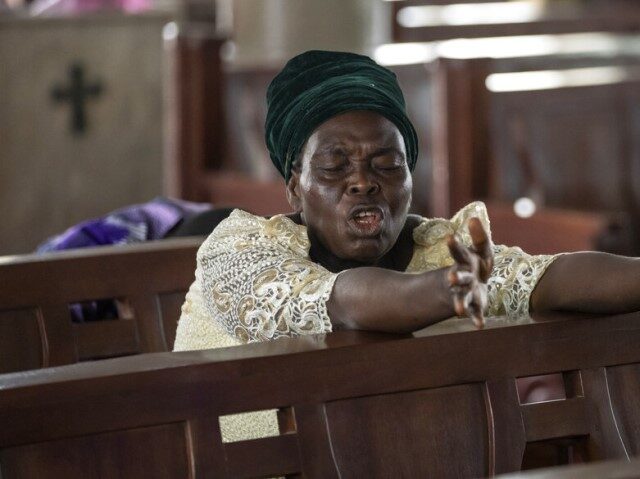ABUJA, Nigeria (AP) — At least 140 people were killed by gunmen who attacked remote villages over two days in north-central Nigeria’s Plateau state, survivors and officials said Tuesday in the latest of such mass killings this year blamed on the West African nation’s farmer-herder crisis.
The assailants targeted 17 communities during the “senseless and unprovoked” attacks on Saturday and Sunday, during which most houses in the areas were burned down, Plateau Gov. Caleb Mutfwang said Tuesday in a broadcast on the local Channels Television.
“As I am talking to you, in Mangu local government alone, we buried 15 people. As of this morning, in Bokkos, we are counting not less than 100 corpses. I am yet to take stock of (the deaths in) Barkin Ladi,” Gov. Mutfwan said. “It has been a very terrifying Christmas for us here in Plateau.”
Amnesty International Nigeria’s office told The Associated Press that it has so far confirmed 140 deaths in the Christian-dominated Bokkos and Barkin-Ladi local government areas of Plateau based on data compiled by its workers on the ground and from local officials, though locals feared a higher death toll with some people unaccounted for.
Some of the locals said that it took more than 12 hours before security agencies responded to their call for help, a claim the AP couldn’t independently verify, but which echoes past concerns about slow interventions in Nigeria‘s deadly security crisis, which has killed hundreds this year, including in Plateau.
African Christians endured another grim year in 2022, especially in Somalia and Nigeria, where Islamist gangs wiped out entire villages. https://t.co/FWTzbRD3I4
— Breitbart News (@BreitbartNews) December 25, 2022
“I called security but they never came. The ambush started 6 in the evening but security reached our place by 7 in the morning,” said Sunday Dawum, a youth leader in Bokkos. At least 27 people were killed in his village, Mbom Mbaru, including his brother, he said.
No group took responsibility for the attacks though the blame fell on herders from the Fulani tribe, who have been accused of carrying out such mass killings across the northwest and central regions where the decadeslong conflict over access to land and water has further worsened the sectarian division between Christians and Muslims in Africa’s most populous nation.
The Nigerian army said it has begun “clearance operations” in search of the suspects, with the help of other security agencies, although arrests are rare in such attacks.
“We will not rest until we bring all those culpable for these dastardly acts to book,” said Abdullsalam Abubakar, who commands the army’s special intervention operation in Plateau and neighboring states.
Presumed jihadists stormed a Catholic church in southwest Nigeria Sunday and opened fire on worshipers, killing at least 50 and wounding dozens more. https://t.co/9l5xDQz757
— Breitbart News (@BreitbartNews) June 6, 2022
Nigerian President Bola Tinubu, who was elected this year after promising to help tackle the security challenges that his predecessor failed to address, has yet to make any public comments about the latest attacks days after they happened.
Tinubu’s government and others in the past haven’t taken any “tangible action” to protect lives and ensure justice for victims in the conflict-hit northern region, Amnesty International Nigeria director Isa Sanusi told the AP.
“Sometimes they claim to make arrests but there is no proof they have done so … The brazen failure of the authorities to protect the people of Nigeria is gradually becoming the ‘norm,’” he said.

COMMENTS
Please let us know if you're having issues with commenting.